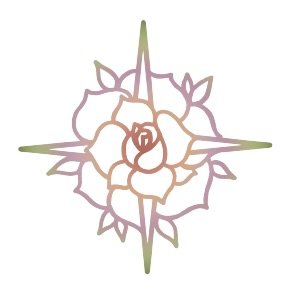Seasonal Depression: What It Is and How to Get Treatment
Depression in general is a topic that is getting more and more attention. With the previous generations making the word taboo, depression has gotten a bad reputation. However, depression and other mental health disorders are coming to light. Did you know there is also a mental health disorder known as seasonal depression?
Much like seasonal allergies that come and go at roughly the same time each year, seasonal depression also comes and goes. Unfortunately, it's not as easy to take a seasonal allergy pill to clear up these depressive symptoms. But there are ways to treat seasonal depression so that you can continue living life to the fullest like you do every other season of the year.
If this is the first time you have heard of seasonal depression, then you will benefit from reading about it below. Learn what it is, understand the symptoms, and find out how to treat it. Thankfully, there is light in the darkness.
What is Seasonal Depression?
Seasonal depression is also known as seasonal affective disorder (SAD). It is a type of depression that is related to changes in the season. It is a predictive disorder in that it typically begins and ends around roughly the same time each year.
Unfortunately, seasonal depression can be difficult to diagnose. Many people may experience seasonal depression during darker, colder times of the year like winter. This can be due to the lack of Vitamin D from the sun. However, everyone is different and each person may experience seasonal depression during other times of the year as well.
How to Treat Seasonal Depression
Seasonal depression can take some time to diagnose. However, there are ways you can help yourself now while you get evaluated for a diagnosis.
Therapy
Therapy is a top treatment for any mental health disorder. Life experiences and traumas can lead to feeling overwhelmed and out of control in life. In addition to seasonal affective disorder, depression is effectively managed through therapy. Talking through what you are feeling and experiencing with a trained professional can help you get to the root of the challenges. You can find out what triggers your SAD and how to limit its hold on your life.
As a therapist, it is my mission to assist individuals who are struggling with mental health disorders. Together, we can build a treatment plan that is best for you, considers your values, and works to restore your mental health.
Medication
Medication isn't for everyone, but for those who are open to a prescription, this is one of the top ways to treat seasonal depression. It is best to consult with your doctor before beginning and stopping any medications.
Those suffering from seasonal affective disorder tend to want to quit their medications as soon as the seasons change and they start feeling better. However, prescription medications need to be taken on a routine basis. Consider what the best option is for you when it comes time to choose a medication.
Support Group
Support groups have been proven to help enhance people's mental health. Being among individuals who understand you and/or who want to see you succeed is encouraging and hopeful, something many depressed individuals don't often feel.
When you're able to be real and honest with those in your support group, it feels like the weight of your mental health disorder is lifted. Keep in touch with your support group year-round if possible to continue connecting even through the good seasons.
Journaling
Keeping a journal is a helpful way to combat seasonal depression. A journal can help you track when you begin feeling symptoms. This is a great way to understand each year around when the depression will begin and end. In addition, keeping a journal can help you discern what may be triggering this season.
Use your journal to write out what you are feeling and experiencing. Write your goals and things you have accomplished. Looking at the positive parts of your life will help you stay focused on getting through this season. Take this journal with you to doctor appointments or reference them in your therapy sessions. Use it as a log for your mental health.
Self-care
Self-care will be helpful in treating seasonal depression. Doing things for yourself makes you feel good. The more you can create this feeling, the better it can be. Take time to sit in a quiet space where you can allow yourself time to focus on yourself. This can be time for meditation, yoga, or prayer.
In addition, you can spend time reading, going to a movie, or just sitting back at your favorite coffee shop. Whatever self-care looks like for you, this is one of the best ways to combat seasonal depression. Make time for yourself each day starting small with five minutes and slowly increasing the time. This is a non-negotiable time for you each day for self-care.
Seasonal Depression Doesn't Define Your
Just because you might be experiencing seasonal depression doesn't mean you have to live your life in the shadows for part of the year. Seasonal affective disorder doesn't define you and it doesn't have to take over your life.
If you choose to combat SAD, using the tips listed above will help minimize the negative impact this disorder can have on your life. However, you can also mitigate the impact by partnering with me as your therapist.
Schedule your free consultation with me so that we can make a plan for your care. With options to work together through virtual sessions, there is no reason why we can't make this partnership work for you. Your mental health deserves to be taken care of. Allow me the opportunity to help you rein in your seasonal depression.
